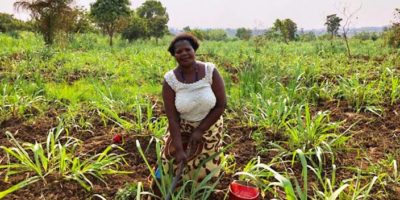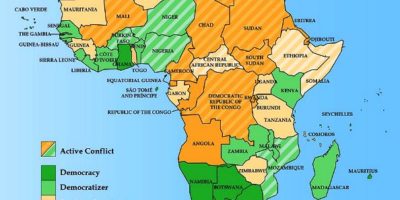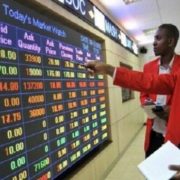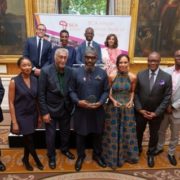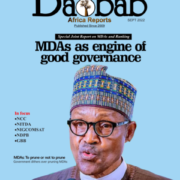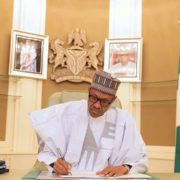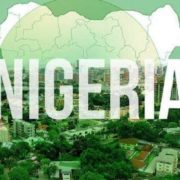CHINWEOKE OBI writes that Gombe offers a paradox of how government policy on poverty alleviation runs outside the circle of the people’s expectations
Water water everywhere/Not any drop to drink.’ The 16th century English poet Samuel Taylor Coleridge, may well have had Gombe in mind when he was penning the immutable words in’ Rhyme of the Ancient Mariner.’
In Gombe State, poverty rules. It makes the ordinary folks helpless and desperate when the rivers and streams lose their waters in the dry season making the life liquid scarce and patched throat a constant complaint in the aridity of Gombe.
‘Ba ruwa,” a girl in her teens was telling an older woman in early March when I passed a dried up river on my way to Gombe town, the capital of Gombe State. The expression in English literally means ‘no water’. A few kilometers ahead another girl, probably not more than 15 years, was digging a hole in this dried up stream. A fellow passenger used the word ‘mining.’
”She is mining for water,” he said in a tone that carried a lot of bitterness. “They are still mining for water after almost 14 years of being a state. This is my state. I belong here.” He added. When the girl finally hit water and scooped it out from the ground. It was brownish, dirty looking like the colour of tea. “This is what she has known all her life. This kind of water,” the man said.
Gombe State was created in October 1, 1996 by the military regime of late General Sani Abacha, with eleven local government areas. The state which was carved out of Bauchi State shares boundaries with Yobe State to the north, Bomo and Adamawa states to the east, Bauchi State to the west and Taraba State to the south.
One of the few industries in the state is the Gombe Oil Seeds Company, reflects the local economy which is still largely agrarian and dominated by primitive farming of millet, corn, rice and guinea corn. The method of farming is irrigation farming with the help of dams.
Little economic activities make the state one of the poorest in Nigeria. This year, the state government, led by Governor Mohammed Danjuma Goje announced a budget of N51.64 billion (less than $400 million), 31% below the 2008 budget due to falling revenue in the few local industries and a shrinking federal earnings as the price of crude oil falls in the international market. More than 95% of Gombe’s budget plans are based on allocations from Abuja, Nigeria’s political capital.
Ben Okri could have also inked a paragraph on the biting poverty of Gombe among the ordinary folks who hunger for hope to live another day. But the characters in Gombe are not spirit beings wrestling with transcendental questions over existence in their own Famished Road. They are human beings battling with the physical challenges of hunger, diseases and shelter.
Gombe also has the unenviable record of being one of Nigeria’s states with high HIV cases. Some analysts claim it has the highest HIV rate in the whole of Nigeria. With more than 68.9% of its population living in abject poverty, the HIV monster is difficult to tame here. It claims its victims without much challenge from a healthcare system that is impoverished because of insufficient funding. The primary healthcare scheme in Gombe competes with other schemes for scarce funding from a $400 million budget that is less than what a middle size university in the United States would spend as research grant in a year.
But in Gombe town the state capital, there are arguments over the rightness of a new pensions and gratuities scheme for the state executive leaders, including Governor Goje and his deputy Mr. Lazarus Yoriyo. By the new law already passed by the state legislative assembly, the governor and his deputy will get N200 million and N100 million respectively as their total pensions and gratuities for serving Gombe State. Critics consider it immoral for the governor and his deputy to run the state purse short of N300 million for serving it.
This Legislative Act went down sourly with the pensioners in the state who protested against the speed with which the act was passed into law and the huge sum of money awarded to the governor and his deputy, when they (pensioners) have not been paid their arrears.
“It is unimaginable that a state that cannot provide basic amenities for its citizen can be compelled to pay so much to its political leaders,” said Istifanus Tanko, a resident of Gombe.
Linus Baba Ahmed a pensioner was blunter. “We are sad that in the midst of this abject poverty, real poverty, where there is no portable drinking water, no roads into the rural areas, crumbling houses and virtually no health care. It is in the midst of this that you find the state’s house of assembly passing into law ‘the Gombe State Executive Act 2008’ that confer on the government and his deputy the right to take such a huge amount out of the state treasury for themselves.”
But government thinks critics got it all wrong. “A lot of people don’t know the level of sacrifice these leaders are putting into governance. We are a poor state and our leaders carry out a lot of self denial just to see to the care of the state. Leadership should not mean poverty. These people have responsibilities too like any other Nigerian”, a senior government official of Gombe State told Baobab Magazine in Abuja.
Poverty eradication is at the heart of the Gombe State government. The state has launched a Monitoring Virtual Poverty Fund (MVPF) scheme and also the Development Exchange Centre, which worked in collaboration with Action Aid Nigeria. It also enjoys the support of Britain’s Department for International Development (DFID) in its fight against poverty.
But there is yet to be any tangible impact on the target citizens. “They need to address the basic facilities that are lacking in the lives of the citizens which make them vulnerable to poverty attack. The people want water. They want basic healthcare. They want education. They want good roads. They want things that would put them in a position to address the challenge of poverty as individuals first,” said Saratu Kwande, facilitator of an NGO based in Jos with a number of programmes for poverty alleviation in Gombe.



